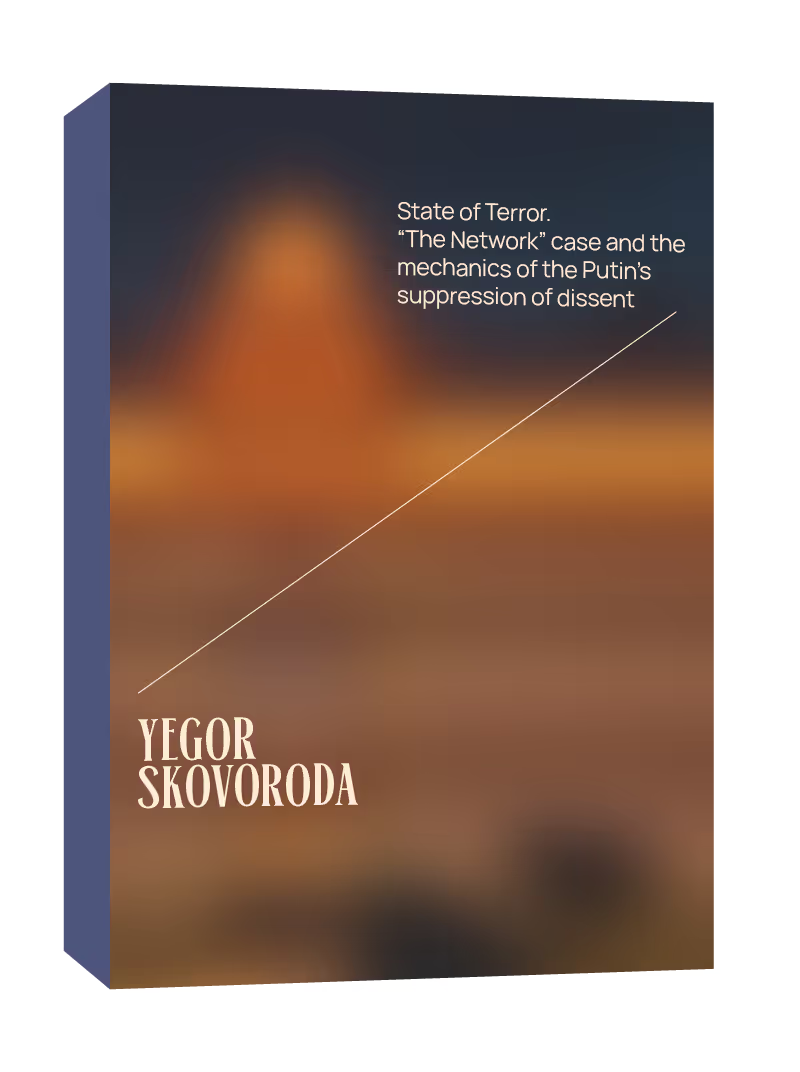In January 2018, Viktor Filinkov, a young software engineer with leftist views, was waiting for his flight at the Pulkovo airport in St. Petersburg when he was approached and detained by several FSB officers. He was put in an unmarked minivan, then, for several hours, he was repeatedly beaten and tortured by tasers. The officers wanted him to admit to being a part of “The Network,” a non-existent anarchist terrorist organization made up by the FSB. Filinkov couldn’t stand the pain and signed everything. Then he went public with his story.
In Putin’s Russia, the law enforcement and the justice system have become the guardians of the regime. When it comes to alleged political crimes, the FSB, the police, the Investigative Committee, the prosecutors, the judges and other agencies and individuals do not serve the law, but follow the orders from the powers that be. This system is built on fear, lies and corruption, and it works on every stage of a person’s journey through detention, trial and prison. The FSB falsifies cases left and right. Torture is widespread. Lawyers aren’t given access to their clients. Relatives and sympathizers are intimidated. State witnesses and experts lie under oaths and invent made-up charges. Judges render whatever verdict the prosecution asks for. And so on.
This book uses the template of “the Network”, one of the most high-profile political cases in Russia in recent years, to show how this system, built by Putin's state, works. Spread through several cities and many defendants, “The Network” case had it all: the torture, the falsifications, even a double murder. It allows the author to show the mechanics of Russian political repressions through vivid and engaging narrative — and to create a complex and controversial picture of the challenges and risks of political activism in Putin’s country.
GENRE
STATUS
SAMPLES
RIGHTS
For more than 15 years, Yegor Skovoroda has been writing about the injustices of the Russian legal system, political repressions initiated by Putin’s regimes and the fates of Russian activists who dare to challenge the Kremlin. In 2014, he became a founding member of Mediazona, an independent news outlet focused on the judicial, law enforcement and penal system in Russia. As its reporter and editor, he has followed dozens of trials, ranging from the murder of Boris Nemtsov to the prosecutions of far-right militants.
Skovoroda won Redkollegia, the most prestigious award for independent Russian journalism, three times. In 2019, he was a fellow at the Prague Civic Society Center; as a result of his fellowship, he published “Killer Dialogues,” a book that studies the characters of two far-right murderers through the transcripts of their private talks. In 2021, his story about violent suppression of protest in Belarus received the Investigative Reporting Award at the European Peace Prize.





